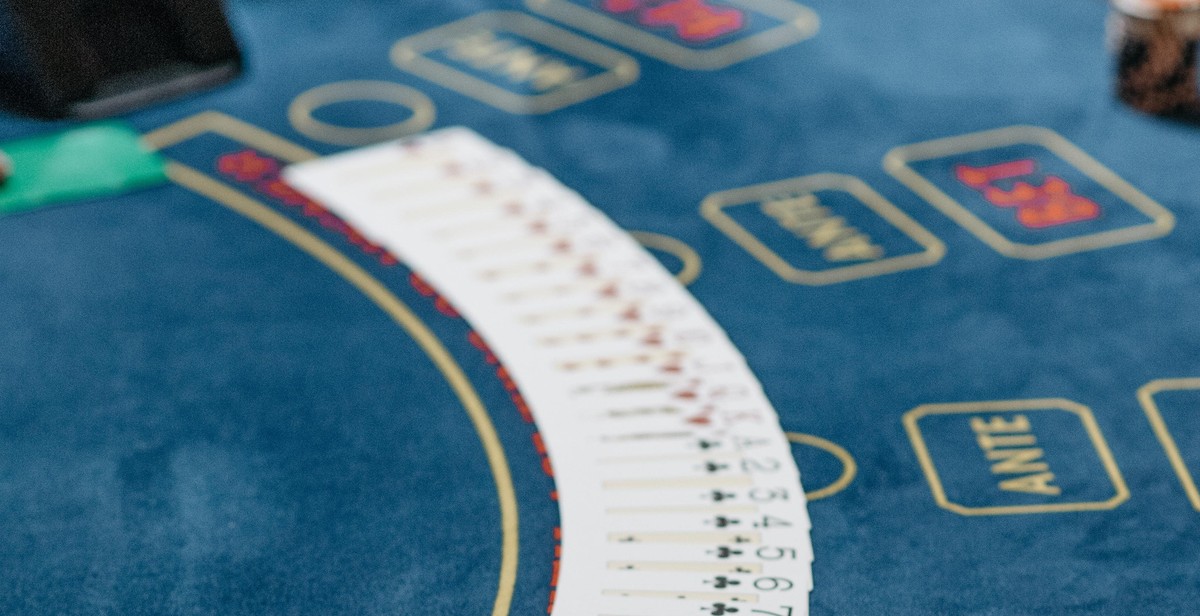How to Develop a Poker Mindset for Success
Poker is not just a game of chance, but also a game of skill and strategy. To be successful in poker, you need to have a strong mindset that allows you to make smart decisions and stay focused even in the face of adversity. Developing a poker mindset takes time and effort, but it can be achieved by anyone with the right approach.
Understand the Importance of Mindset
Many players make the mistake of thinking that poker is all about luck. While there is certainly an element of luck involved, it’s important to understand that skill and strategy play a much bigger role in long-term success. Having the right mindset can help you make the most of your skills and minimize the impact of luck on your results.
Be Prepared for Variance
Even the best players in the world can experience losing streaks and bad beats. It’s important to be mentally prepared for these ups and downs and not let them affect your decision-making. Understanding the concept of variance and accepting that it’s a natural part of the game can help you stay focused and avoid tilt.
Develop a Strong Work Ethic
To be successful in poker, you need to be willing to put in the time and effort required to improve your skills. This means studying the game, analyzing your own play, and constantly seeking out new strategies and techniques. Having a strong work ethic and a commitment to continuous improvement is essential for long-term success in poker.
Conclusion
Developing a poker mindset is not easy, but it’s essential for anyone who wants to be successful in the game. By understanding the importance of mindset, being prepared for variance, and developing a strong work ethic, you can improve your decision-making, stay focused, and maximize your long-term results in poker.
Understand the Game
Before you can develop a successful poker mindset, you need to understand the game of poker. This involves learning the rules of poker and studying the different poker variants.
Learn the Rules of Poker
The first step in understanding poker is to learn the basic rules of the game. Poker is a card game that is played with a standard deck of 52 cards. The objective of the game is to win the pot, which is the sum of all bets made by the players in a hand. To win the pot, a player must have the best hand or convince other players to fold their hands.
There are different variations of poker, but the most popular is Texas Hold’em. In Texas Hold’em, each player is dealt two cards face down, and then five community cards are dealt face up in the middle of the table. Players use their two cards and the five community cards to make the best possible five-card hand.
Study the Different Poker Variants
Once you have a good understanding of the basic rules of poker, it’s important to study the different poker variants. Each variant has its own unique rules and strategies, and mastering different variants can help you become a well-rounded player.
Some popular poker variants include:
- Omaha
- Seven-Card Stud
- Razz
- Badugi
By studying and playing different variants, you can develop a deeper understanding of the game and improve your overall poker skills.

Develop Your Skills
Developing a strong poker mindset requires mastering several key skills. By improving your hand reading skills, mastering pot odds and expected value, and enhancing your bluffing techniques, you can take your poker game to the next level.
Improve Your Hand Reading Skills
Hand reading is one of the most important skills in poker. It involves analyzing your opponents’ actions and trying to determine what cards they are holding. To improve your hand reading skills, start by paying close attention to your opponents’ betting patterns. Look for any inconsistencies or patterns that may give away their hand. Additionally, try to put your opponents on a range of hands based on their position, previous actions, and the board texture.
Master Pot Odds and Expected Value
Understanding pot odds and expected value is crucial to making profitable decisions in poker. Pot odds refer to the ratio of the current size of the pot to the cost of calling a bet. Expected value is a calculation of the potential profit or loss of a particular decision. By mastering these concepts, you can make better decisions about when to call, raise, or fold.
Enhance Your Bluffing Techniques
Bluffing is an essential part of poker, but it can be tricky to pull off successfully. To enhance your bluffing techniques, start by choosing your spots carefully. Look for situations where your opponents are likely to fold, such as when the board texture is unfavorable to their hand. Additionally, try to read your opponents’ body language and betting patterns to determine when they may be weak and more likely to fold.
| Skills | Actions to Take |
|---|---|
| Hand Reading | Pay attention to opponents’ betting patterns and put them on a range of hands. |
| Pot Odds and Expected Value | Understand the concepts and use them to make better decisions. |
| Bluffing | Choose spots carefully and read opponents’ body language and betting patterns. |

Master Your Emotions
One of the most important aspects of developing a successful poker mindset is mastering your emotions. Emotions can easily cloud your judgment and lead to poor decision-making, causing you to lose money and miss out on opportunities. Here are some tips for controlling your emotions at the poker table:
Practice Patience and Discipline
Patience and discipline are critical traits for any successful poker player. It’s important to resist the urge to play every hand and instead wait for the right cards and opportunities. This requires discipline and a willingness to fold when necessary. By practicing patience and discipline, you’ll avoid making impulsive decisions that can lead to losses.
Control Your Tilt
Tilt is a state of emotional frustration or anger that can negatively affect your decision-making abilities. It’s important to recognize when you’re experiencing tilt and take steps to control it. This may involve taking a break, changing your mindset, or simply walking away from the table. By controlling your tilt, you’ll be able to make better decisions and avoid costly mistakes.
Avoid Emotional Decisions
Emotions can also lead to making decisions based on personal biases or feelings rather than sound strategy. It’s important to separate your emotions from your decision-making process and focus on objective factors such as the strength of your hand, the odds, and the actions of your opponents. By avoiding emotional decisions, you’ll be able to make more rational choices and increase your chances of success.
- Practice patience and discipline
- Control your tilt
- Avoid emotional decisions

Bankroll Management
One of the most important aspects of developing a successful poker mindset is managing your bankroll effectively. This means setting a budget for poker and sticking to it, regardless of how well or poorly you are playing.
Set a Budget for Poker
Before you start playing poker, it’s important to set a budget for yourself. Determine how much money you can afford to lose without it affecting your daily life. This amount should be considered your poker bankroll.
It’s important to note that your bankroll should only consist of money that you can afford to lose. Don’t dip into your savings or borrow money to play poker. This will only lead to stress and anxiety, which can negatively impact your game.
Manage Your Bankroll Effectively
Once you have set a budget for poker, it’s important to manage your bankroll effectively. This means only playing at stakes that are appropriate for your bankroll size. As a general rule of thumb, you should have at least 20 buy-ins for the stakes you are playing.
For example, if you have a bankroll of $1,000, you should only be playing at stakes where the maximum buy-in is $50. This will ensure that you have enough money to withstand the natural variance of the game.
It’s also important to track your results and adjust your stakes accordingly. If you are consistently winning at a certain stake level, you may consider moving up to the next level. Conversely, if you are consistently losing, it may be time to move down to a lower stake level.
Conclusion
Effective bankroll management is crucial for developing a successful poker mindset. By setting a budget for poker and managing your bankroll effectively, you can minimize stress and anxiety and focus on making the best decisions at the table.

Develop a Winning Mindset
Developing a winning mindset is crucial for success in poker. It is important to stay focused on your goals, believe in yourself, and learn from your mistakes.
Stay Focused on Your Goals
Having a clear set of goals is essential to developing a winning mindset. Your goals should be specific, measurable, and achievable. Once you have identified your goals, create a plan to achieve them and stay focused on that plan. Avoid distractions and stay committed to your goals, even when faced with challenges.
Believe in Yourself
Believing in yourself is a key component of developing a winning mindset. You must have confidence in your abilities and be willing to take risks. Surround yourself with positive people who support your goals and aspirations. Use positive self-talk and visualization techniques to boost your confidence and keep a positive outlook.
Learn from Your Mistakes
Mistakes are inevitable in poker, but how you handle them will determine your success. It is important to learn from your mistakes and use them as opportunities for growth. Analyze your mistakes objectively and identify what went wrong. Use this information to improve your skills and avoid making the same mistakes in the future.
By staying focused on your goals, believing in yourself, and learning from your mistakes, you can develop a winning mindset that will lead to success in poker.
Conclusion
Developing a poker mindset is essential to becoming a successful poker player. It requires discipline, patience, and a willingness to learn from your mistakes. While it may seem daunting at first, with dedication and practice, you can cultivate the mental habits necessary for success at the poker table.
Key takeaways
- Understand the importance of mindset in poker
- Develop discipline and patience
- Stay focused on the present moment
- Learn from your mistakes
- Practice good bankroll management
Final thoughts
Remember, developing a poker mindset is an ongoing process. It requires constant self-reflection, learning, and adaptation. By following the tips outlined in this article, you can start to cultivate the mental habits necessary to succeed in the game of poker. Good luck at the tables!
